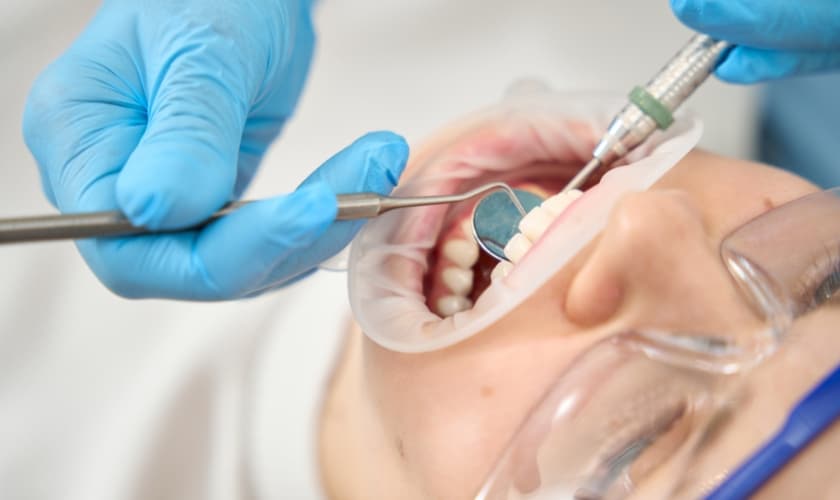As a society, we are well aware of the dangers of smoking. From lung cancer to heart disease, the risks associated with tobacco use are numerous and severe. However, there is one danger that often goes overlooked: gum disease. Gum disease is a serious condition that affects millions of people worldwide, and it can have devastating consequences for your oral health. In this article, we will explore the link between smoking and gum disease, as well as the effects of smoking on oral health. We will also discuss how smoking increases your risk of developing gum disease and what you can do to prevent it. So if you’re a smoker or know someone who is, read on to learn more about this important topic.
Source – Respiratory Therapy Zone
The Link Between Smoking and Gum Disease
- Did you know that smoking is one of the leading causes of gum disease? It’s true. Gum disease, also known as periodontal disease, is a bacterial infection that affects the tissues and bones that support your teeth. When left untreated, it can lead to tooth loss and other serious health problems.
- Studies have shown that smokers are two times more likely to develop gum disease than non-smokers. This is because smoking weakens your immune system, making it harder for your body to fight off infections. Additionally, smoking reduces blood flow to the gums, which makes it harder for them to heal once they become infected.
- If you’re a smoker, it’s important to understand the link between smoking and gum disease. By quitting smoking and taking steps to improve your oral hygiene, you can reduce your risk of developing this painful and potentially dangerous condition.
The Effects of Smoking on Oral Health
- Smoking is a harmful habit that can have serious consequences on your oral health. It not only stains your teeth and causes bad breath, but it also weakens your immune system, making it harder for your body to fight off infections. This means that smokers are more likely to develop gum disease than non-smokers.
- In addition to weakening the immune system, smoking also reduces blood flow to the gums, which can cause them to recede and expose the roots of the teeth. This can lead to sensitivity, pain, and even tooth loss. Smoking also interferes with the healing process after dental procedures, making it harder for the gums to heal properly.
- Overall, smoking has a negative impact on oral health and increases the risk of developing gum disease. It’s important for smokers to be aware of these risks and take steps toward quitting in order to protect their oral health and overall well-being.
How Smoking Increases Your Risk of Gum Disease
- It’s no secret that smoking is bad for your health, but did you know that it can also significantly increase your risk of developing gum disease? Studies have shown that smokers are twice as likely to develop gum disease compared to non-smokers. This is because smoking weakens the immune system and makes it harder for the body to fight off infections, including those in the gums.
- Furthermore, smoking can cause a decrease in saliva production, which is essential for washing away harmful bacteria in the mouth. This allows bacteria to accumulate and form plaque on teeth and gums, leading to inflammation and infection. The chemicals in tobacco smoke also damage the tissues of the gums, making them more susceptible to infection.
- If you are a smoker, it’s important to understand how smoking increases your risk of gum disease so that you can take steps to protect your oral health. Quitting smoking is one of the best things you can do for your overall health and well-being. Not only will it reduce your risk of gum disease, but it will also improve your lung function, reduce your risk of cancer and heart disease, and save you money on healthcare costs.
The Treatment of Gum Disease
- If you have been diagnosed with gum disease, the good news is that it can be treated. The treatment for gum disease depends on the severity of the condition. In mild cases, thorough cleaning by a dental hygienist or dentist may be enough to remove plaque and tartar buildup and prevent further damage. This type of cleaning is called scaling and root planning.
- In more severe cases, surgery may be necessary to remove damaged tissue and bone. This procedure is called flap surgery or pocket reduction surgery. During this procedure, the gums are lifted back, and the tartar is removed from deep pockets that have formed around the teeth. The gums are then sutured back into place so that they fit snugly around the teeth.
- It’s important to note that while treatment can help manage gum disease, it’s not a cure. Good oral hygiene practices such as brushing twice a day, flossing daily, and having regular dental check-ups are essential to maintaining healthy gums and preventing further damage.
How to Quit Smoking
- Quitting smoking is not an easy task, but it is necessary for your overall health and well-being. There are many methods available to help you quit smoking, including nicotine replacement therapy, prescription medications, and counseling. It’s important to find the method that works best for you and stick with it.
- One effective way to quit smoking is by creating a plan and setting a quit date. This can help you mentally prepare for the change and give you a specific goal to work towards. Additionally, finding support from friends and family can be incredibly helpful in staying motivated during the quitting process.
- It’s also important to identify triggers that may cause you to smoke, such as stress or social situations, and develop strategies to avoid or cope with them. This could include finding alternative ways to manage stress or avoiding situations where smoking is prevalent.
- Remember, quitting smoking is a journey and may take time. Don’t be discouraged if you experience setbacks along the way. Keep pushing forward and stay committed to improving your health by quitting smoking.
Conclusion
In conclusion, it is evident that smoking and tobacco use can have a severe impact on your oral health. The link between smoking and gum disease cannot be ignored, as smokers are at a higher risk of developing this condition than non-smokers. Smoking weakens the immune system and reduces blood flow to the gums, making it difficult for the body to fight off infections. However, quitting smoking can significantly reduce your risk of gum disease and improve your overall oral health. It may not be easy to quit smoking, but with the right support and resources, it is possible. By taking care of your oral health and making positive lifestyle changes, you can enjoy a healthier smile for years to come.





